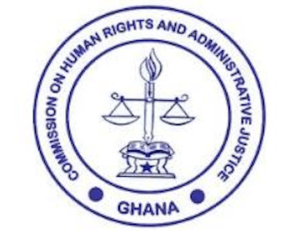CHRAJ does meticulous investigation of corruption cases
 Ms. Fatimata Mahami, Tema Director of the Commission on Human Rights and Administrative Justice (CHRAJ) has said that the Commission does meticulous investigations into corruption cases it receives.
Ms. Fatimata Mahami, Tema Director of the Commission on Human Rights and Administrative Justice (CHRAJ) has said that the Commission does meticulous investigations into corruption cases it receives.
Ms. Mahami said due to the nature of the investigations they carry into cases of corruption allegations; it took some time for them to conclude and give their recommendations leading to the public perception that the Commission delayed in releasing its findings.
She said this during the 13th Ghana News Agency-Tema Regional Office’s monthly Stakeholders’ Engagement when speaking on the topic: “Is the Fight Against Corruption in Ghana, A Mirage or Reality, the Perspective of CHRAJ”.
The monthly engagement also serves as a motivational mechanism to recognize the editorial contribution of reporters towards national development in general and the growth and promotion of the Tema GNA as the industrial news hub.
Ms. Mahami added that investigators had to exhaust all possible factors in establishing the truth or otherwise of a case, indicating that sometimes the delay was not even from their end as it took a longer period for the needed information from some institutions and individuals whose response might be needed in a particular case.
On whether the Commission sees to the implementation of its recommendations, she said by law they give the institution or whoever the issue was against three months to comply with the recommendations, followed with a letter of reminder when they failed to do so, after which they resort to the courts for enforcement.
She called on the public to inform them of any corruption-related issue they might have witnessed or heard of for the needed action.
She said even though the Commission has interest and following cases of national interest not directly reported to it, the public must also be willing to report such issues to the commission as their quota in curbing corruption in the country as they would also be affected by it.
She gave the assurance that apart from the cases that were already in court, and those involving foreign countries, CHRAJ has the mandate to investigate all corruption, human rights, and administrative cases including that of people seen as influential in society.
Ms. Mahami also called on the media to continue to collaborate with CHRAJ and other state institutions with mandates to fight corruption to educate the public on the devastating effect of corruption on them directly and indirectly.
Giving some of the effects, she said it included the high cost of doing business as people have to part away with envelopes before their documents received the needed endorsement among others.
Other effects she said were poor health care delivery as monies meant for the provision of the needed logistics and equipment ended up being misapplied or embezzled, frustration, and lack of fairness in school admissions or employment.
Mr. Francis Ameyibor, Tema Regional Manager of the Ghana News Agency said the media was progressively moving away from only setting the agenda to ensuring that the agenda it sets were properly handled and the required results yielded.
He said corruption was destroying not only Ghana but many more developing countries but sometimes corrupt officials clandestinely clothe it with terminologies and with political colours to make it more appealing, therefore the need to involve everyone in its fights as it affects everyone.
Other speakers included Dr. Stephen Ayisi-Addo Programme Manager for the National AIDS/STI Control Programme who spoke on “Ghana’s HIV strategies in line with the global health strategy for HIV, STI, and Viral Hepatitis – an Integrated approach to prevention”.
Source: GNA
